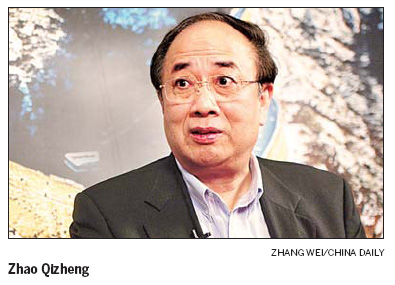China needs more public diplomacy: official
China needs a bigger public diplomacy campaign to better present the country to the world, said Zhao Qizheng, spokesman for the Chinese People's Political Consultative Conference (CPPCC), on Monday.
In an exclusive interview with China Daily in the Great Hall of the People, the chairman of the foreign affairs committee of the National Committee of CPPCC, said governmental diplomacy and public diplomacy are mutually complementary.
 |
President Hu Jintao's speech to Yale University students in 2006 is a typical example of China's public diplomacy, which has existed for many years, Zhao said,
In 2001, the Boao Forum for Asia (BFA), a non-governmental international organization, was inaugurated, committed to promoting regional economic integration and bringing Asian countries even closer to development goals.
Last year, the BFA, based in Hainan province, attracted a record 1,700 participants, most of whom were leaders in government, business and academia in Asia.
Compared to governmental diplomacy, public diplomacy can better "explain" China's national condition and policies, and "present" the country to the world, Zhao said.
"In such communications, participants from both sides don't need to restrict their talks to diplomatic rhetoric, as neither is there to sign some treaty or make some announcement for their countries," he said. Participants of public diplomacy can discuss a wider range of issues with more active and straightforward expressions, he said.
Internationally, public diplomacy was first used in 1965 by Edmund Gullion, a career American diplomat, according to the United States Information Agency Alumni Association. It refers to the spreading of knowledge about a country's foreign policy via communication with foreign public audiences.
Though public diplomacy has existed in China for a long time, "the campaign is not big enough", Zhao said, when asked what the main difficulty is.
 0
0 






